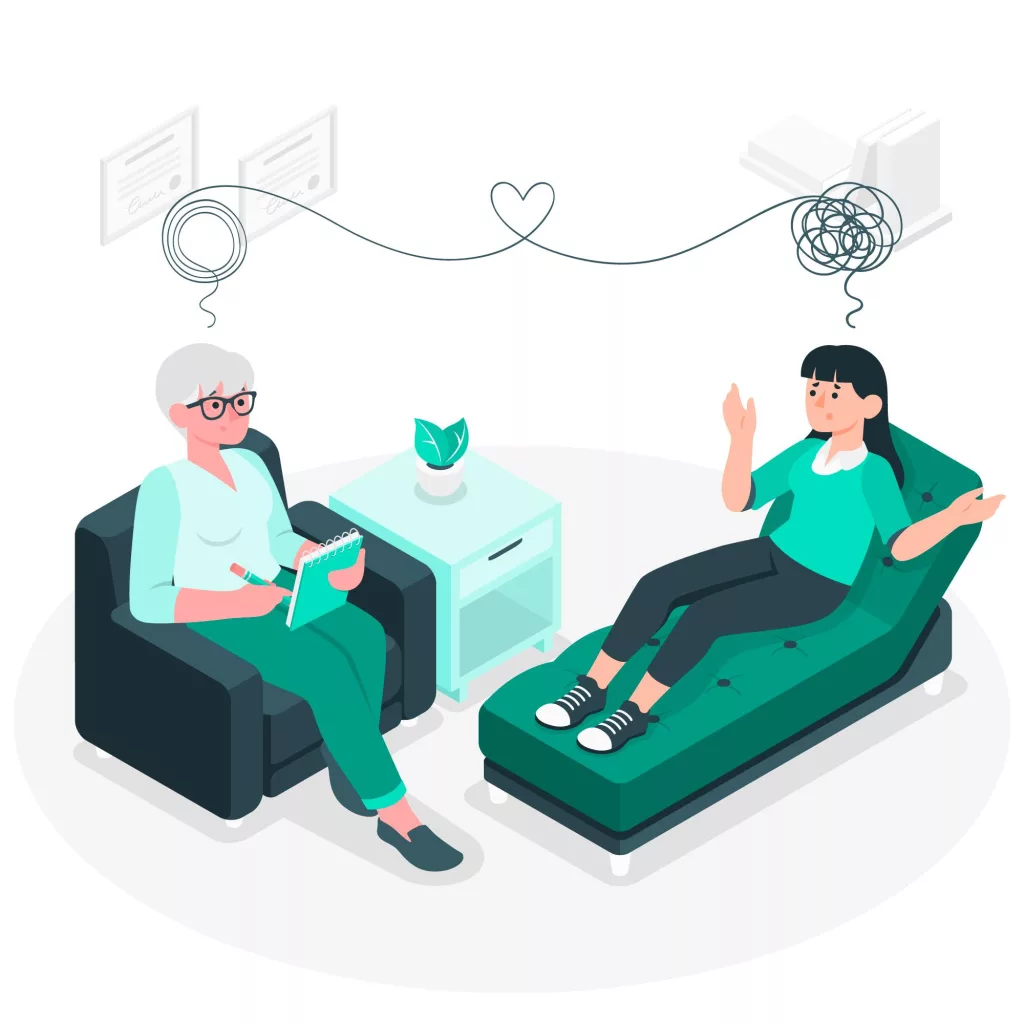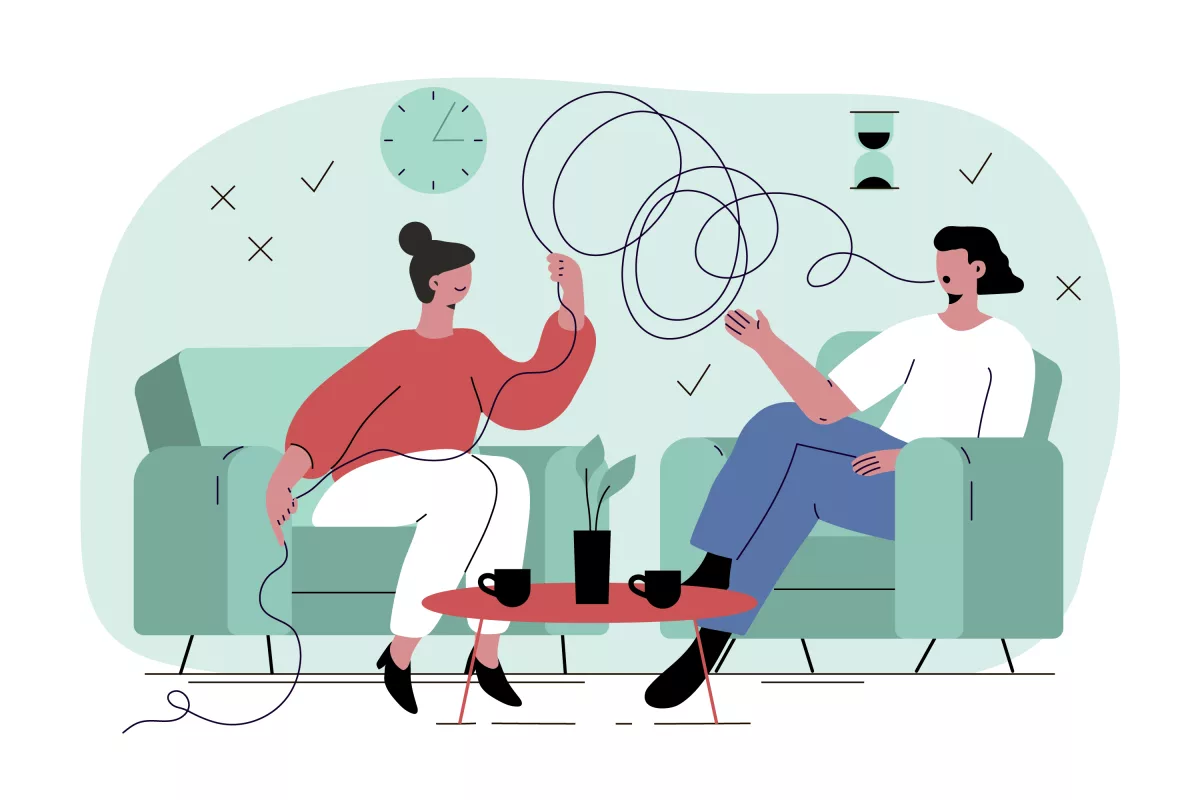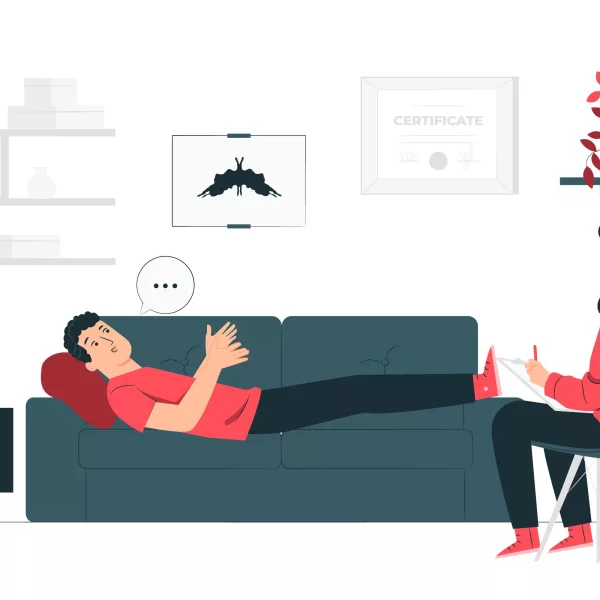While the conversation around therapy has definitely exploded over the last few years, there is not enough
So let’s break down the basics:
What is Therapy?
Therapy is an umbrella term for a number of medical treatment approaches that help manage emotional distress. It’s also often called ‘talk therapy’ or psychotherapy. It not only helps reduce the symptoms – such as anger, stress or sadness – but can also help identify root causes of people’s behavior. This, in turn, can help you assess and make modifications to lead more fulfilling, emotionally balanced lives.
Therapy is generally structured in sessions – and provided by a licensed practitioner. The sessions can be conducted alone, in couple or group settings, depending on what approach you opt for. It can last only a few weeks if you’re dealing with something immediate or short-term or for longer (several months or more) if you’re dealing with something chronic or more complex. Depending on the severity of the condition, therapy can be administered alone, or in combination with medication.
Types of therapy
There’s no one-size-fits-all when it comes to therapy – and there are many different types of therapy approaches that therapists use. They might also use a combination of several approaches depending on your needs. If you’re looking to learn more about the different types of therapy – and wondering which might be right for you – check out our guide on the different types of therapy.
Psychologists, therapists, psychiatrists – what’s the difference?
Although these terms are often used interchangeably, there is a difference. Therapists and psychologists are both licensed practitioners who have degrees in psychology, but typically a psychologist is required to have at least a doctoral degree and more specialized training in a particular focus area. A psychiatrist is a medical doctor who can prescribe medication for mental illnesses.
Does therapy work?
The short answer is: yes. Several studies have shown that those who undergo therapy are not only able to manage their emotional symptoms better, but also are more emotionally resilient, more satisfied with their work, are able to function better in their daily lives, and even have fewer physical/medical problems! Brain imaging studies in the recent past have also demonstrated that therapy can impact and improve brain function, especially in people who have been diagnosed with mental illnesses like depression or PTSD.
But it’s important to remember that therapy is a collaborative process – ultimately both you and your therapist need to work together to achieve the mental health goals you set for yourselves.

Answering the question: Do I need therapy?
There is a misconception that you only need therapy if you’re suffering from a severe mental illness. But the truth is: everyone can benefit from therapy. Whether you’re going through a life transition – getting laid off, pursuing a new career, getting married or divorced, becoming a parent, being diagnosed with a medical illness – or just need help with dealing with everyday life – whether it’s relationship, work, studies or family – therapy can be useful in all of these circumstances. Think of it as understanding more about your life, your emotions and why you behave the way you do.
It’s okay to feel nervous about seeking therapy, especially since there’s still a lot of stigma attached to the process, but remember the first step towards feeling better is asking for help.

















Share this article